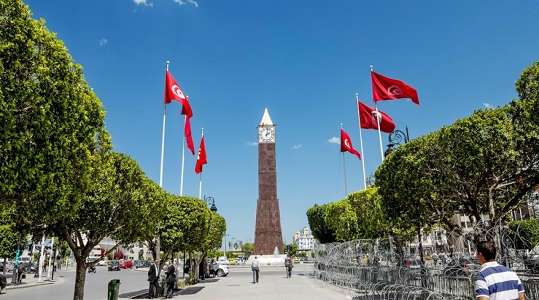The data released by the Tunisian National Institute of Statistics (governmental) showed that the inflation rate in Tunisia stood at 6.3 percent last May, compared to the previous month (April).
According to the institute, the stability of inflation in the country is due to the decline in the pattern of high food prices, which rose by 4.7 percent last May, compared to 6.2 during the previous month. The stability of the inflation rate came despite the acceleration of the pace of the increase in transportation services prices by 12.7 percent in May compared to 5 percent in April and the prices of the restaurant and cafes group increased by 13.5 percent from 9.6 percent during both compared periods, according to the statement.
Tunisia expects its economy to shrink by 4.3 percent this year, due to the fallout from the Coronavirus. The Tunisian economy witnessed a slowdown in growth during the year 2019, to record 1 percent, compared to 2.5 percent in 2018.
In parallel, the Central Bank of Tunisia revealed that the local currency exchange rates (the dinar against the European euro) that were traded at 4.90 dinars are completely wrong.
Noting that the foreign exchange market works today naturally and smoothly, explaining that the prices in the exchange market amounted to 3.21 in relation to the euro and about 2.85 in relation to the dollar. The Tunisian Central explained this daily change to the evolution of the euro/dollar price.
The central bank announced that the foreign currency reserves reached 141 supplying days, compared to 73 days during the same period in 2019.
Source (Anatolia Agency, Edited)

